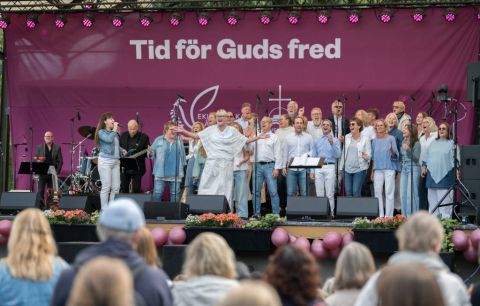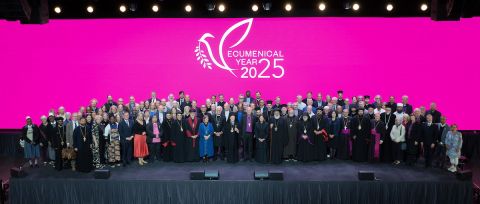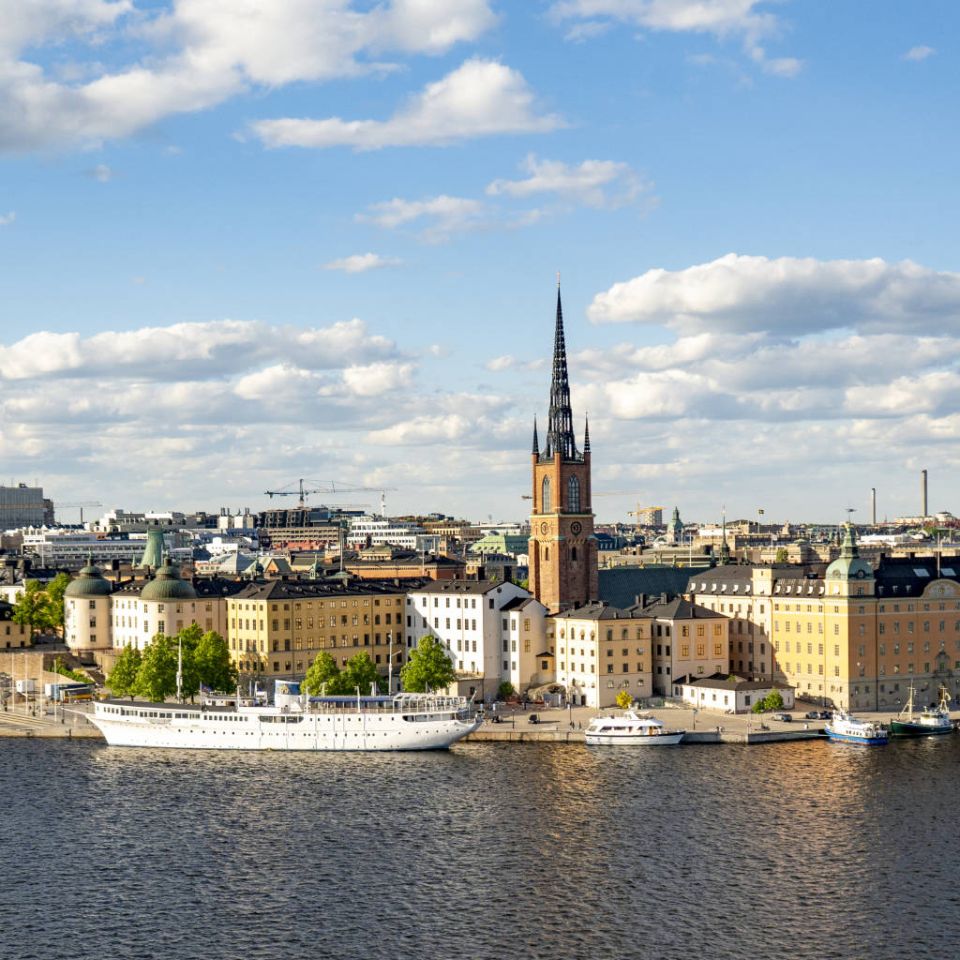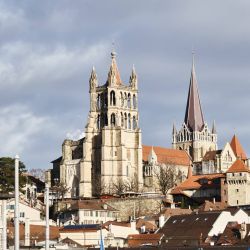
“Time for God's peace” - Ecumenical celebration in a park in Stockholm, August 23, 2025 (Photo Hillert, WCC)
Between August 22 and 24, 2025, I took part in the centennial of the 1925 Stockholm Conference, a major milestone in modern ecumenism. Three events marked this commemoration: a service at the Philadelphia Pentecostal Church, a celebration in Stockholm Cathedral in the presence of the King and Queen, and a solemn liturgy in Uppsala. These celebrations also commemorated the 1700th anniversary of the Council of Nicaea, which affirmed the unity of the Church around the Trinitarian faith.
A Living Legacy: the Prophetic Call of Nathan Söderblom
In 1925, Swedish Archbishop Nathan Söderblom convened the first “Life and Work” conference in a Europe ravaged by war. For him, Christian unity could not wait for complete doctrinal agreement, but had to be embodied in a common task in the service of peace and justice. His vision, nourished by the demands of Christ, laid the foundation for the World Council of Churches.
A hundred years later, this message remains relevant. The 2025 celebrations emphasized the need for repentance, humility, and reconciliation. Diverse voices—Lutheran, Pentecostal, Reformed, Orthodox, Catholic—emphasized the role of Christians as peacemakers in a world marked by conflict, injustice, migration, climate crisis, and technological challenges.
Orthodox Patriarch Bartholomew reminded us that peace begins in the heart, while the general secretary of the World Council of Churches (WCC), Jerry Pillay, emphasized the responsibility of churches in the face of current threats.
The Nicene Creed, solemnly proclaimed, reminded us that visible unity is the work of the Holy Spirit. Thus, these days served as a reminder that Christian unity is not a luxury but a missionary requirement and an urgent necessity for world peace.

Celebration at the Philadelphia Pentecostal Church in Stockholm (Photo Hillert, WCC)
The path to the “Jubilee of Jubilees”
In this context, I gave a lecture on JC2033, in particular the path that leads us from 2025 to 2033, the 2000th anniversary of the Resurrection, the “Jubilee of Jubilees.”
I emphasized that we were inspired by Pope Francis' call to “walk, pray and work together” and that we are in line with the spirit of the “pilgrimage of unity and reconciliation” promoted by the WCC. The image of the road to Emmaus illustrates this approach: the Risen Jesus walks with his people and lights the way.
I also pointed out that JC2033 is collaborating with other global networks such as “Roundtable 2033” and “Agenda 2033,” bringing together various movements and ministries. Similarly, the “Easter Together 2025” initiative, marking the 1700th anniversary of the Council of Nicaea and this year's common date for Easter, is an important milestone on the road to 2033.
The vision is that in 2033, every human being will be able to hear in their own language: “Christ is Risen, He is truly Risen!” The JC2033 logo—the empty tomb—reminds us that Jesus is alive today. 2033 is not an end in itself: the essential thing is to walk together now, in unity and witness, so that Christ may be at the center.
Returning to the sources of the Christian faith in 2033
I was very interested in the message from Pope Leo XIV, read by Archbishop Flávio Pace, Secretary General of the Dicastery for Promoting Christian Unity, saying:
"What unites us is much stronger than what divides us. Christ's will is that we be together to bear witness to him. We believe that the unity Christ desires for his Church must be visible, and that such unity grows through theological dialogue, common prayer, when possible, and shared witness in the face of humanity's suffering."
In a world marked by violence, where the Evil One works to divide us, Flávio Pace called on the Churches to return to the sources of their faith by going to Jerusalem for the Jubilee of Christ's Resurrection in 2033.
I also recall the challenge issued by Lutheran Archbishop Martin Modeus, Primate of the Lutheran Church of Sweden, in his homily, "If I am close to the Risen Jesus, I will see what He sees and I will be able to do what He does. “ This presence of Christ gives us the strength to be reconciled ”seventy times seven times," as the Gospel of that day says (cf. Matthew 18:18-21).
In my lecture, I recalled that faith in the dead and Risen Christ is the foundation of all commitment to justice and peace. The first words of the Risen One to his disciples are indeed: “Peace be with you” (John 20:19).
Martin Hoegger



